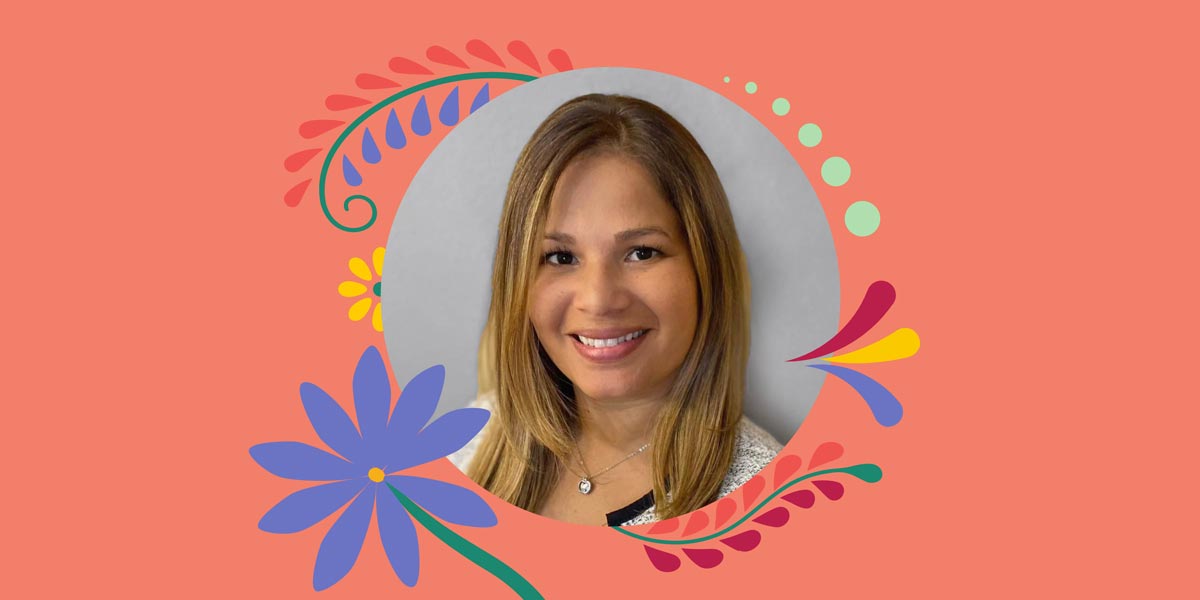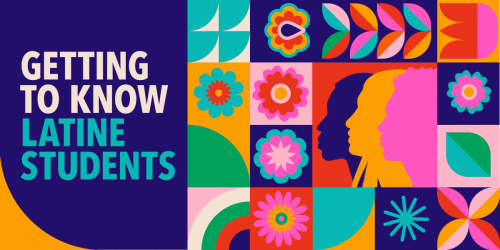No Single Story—Latine Heritage Month

I am Puerto Rican. I grew up with my grandmother (abuela) in a finca on the island of Puerto Rico, in a household where we listened and danced to the African-influenced drums of salsa and sang to the Spanish guitars of boleros. We spoke Spanish fast, rolling our r’s and dropping the s. I grew up in a household where disagreements abounded, but “familismo”—the commitment to family over the individual—was law. Mi abuela did not have a formal education—washing clothes in the river and cooking for the men who worked the sugar cane fields from an early age, she had no access to school. Yet her stories were the source of my true first education and my passion for oral tradition and multiliteracy.
I am Afro-Latina. Race and ethnicity, deeply rooted in a long history of colonization, are an important part of my identity. Like most Puerto Ricans, my genes can be traced back to the Taino people (Arawak, Indigenous people from the Caribbean), Spain, and, in my case, specifically 13 African countries and peoples, most prominently Senegal, Nigeria, Cameroon, Congo, and Western Bantu. A beautiful fusion, albeit the product of brutality and oppression. The stories of mis abuelos reminded me that I cannot separate who I am from my ancestors’ history, and I do not want to. I celebrate and honor their resilience in my work in the pursuit of racial equity.
I am Hispanic. Spanish is my first language, and although Puerto Rico is an American territory, I did not learn English until I moved to the United States at the age of 17. In college, it was frustrating not having access to credit-bearing courses until I completed the English development program, especially since 80 percent of the student population of the community college I attended spoke Spanish. I learned firsthand about deficit-based approaches to language and learning, and it was then that bilingualism, biculturalism, and biliteracy became as important to my identity as they later did to my work.
I am also American. This is not a paradox. I’ve created a life in the United States and appreciate the opportunities my family has. We live on the mainland but visit Puerto Rico every other year. I am aware this is a privilege. We keep our traditions alive but have also embraced new ones. I have raised two beautiful children who speak, read, and write in both English and Spanish and who call the United States home but are also proud of their heritage. It’s not complicated.
When asked to share my perspective, I often wonder “why would anyone be interested in hearing part of my story?” It dawned on me that we ought to share our stories because, in the words of novelist Chimamanda Ngozi Adichie, “Stories matter. Stories can empower …” and single stories—such as stereotypes or assumptions—can be dangerous. Labels carry deep personal and historical meanings and context and culture are often misunderstood and difficult to recognize beyond the individual stories we may hear. Even after deliberately considering, understanding, and embracing the concept of cultural relevance to empower students, it is challenging to fully separate our work from our experiences and system of beliefs. Valuing students’ identities and ways of knowing enables them to make meaning out of their literacy and to connect with one another, resulting in deeper engagement and a sense of belonging.
There isn’t a single story when it comes to being Hispanic or Latinx. There is no one way to look, sound, or be Latinx—we are multidimensional and multifaceted, not homogeneous. We don’t fit into one box. For me, it’s more about emphasizing, promoting, and celebrating our assets and contributions. This Latinx Heritage Month, I celebrate our shared history and heritage, but also the beauty of the racial, ethnic, and linguistic diversity of our diaspora.



